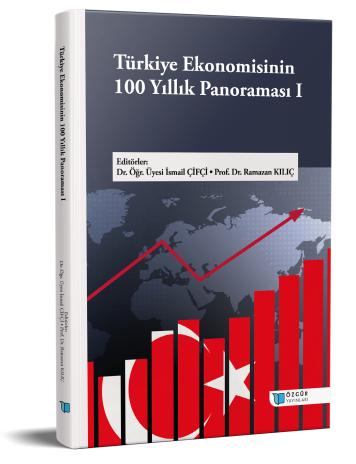
Türkiye İş Gücü Piyasasının 100 Yıllık Dönüşümü
Şu kitabın bölümü:
Çifçi,
İ.
&
Kılıç,
R.
(eds.)
2024.
Türkiye Ekonomisinin 100 Yıllık Panoraması I.
Özet
Bu çalışma, Türkiye Cumhuriyet’inin kuruluşundan itibaren emek ve iş gücü piyasalarındaki yapısal dönüşümlerini tarihsel, ekonomik ve teknolojik bağlamda incelemektedir. Çalışma, Türkiye’nin yüz yıllık iş gücü gelişimini dört ana döneme ayırarak ele almaktadır: Erken Cumhuriyet Dönemi, sanayileşme ve şehirleşme (1950-1980), ekonomik-sosyal değişimler (1980-2000) ve küreselleşme ile teknolojik değişim (2000-2023). Erken Cumhuriyet döneminde, tarıma dayalı bir ekonomiden sanayiye geçiş hedeflenmiş, fakat savaşların etkisiyle iş gücü piyasası kadın ve çocuk emeğine dayanmıştır. Bu dönemde işçi hakları, sosyal güvenlik ve çalışma koşullarını düzenleyen ilk politikalar hayata geçirilmiştir. 1950-1980 arası dönemde sanayileşme ve kentleşme hızlanmış, iç göçler artmış, ancak ekonomik krizler ve yetersiz politikalar nedeniyle kalkınma süreci sekteye uğramıştır. 1980 sonrası dönemde, neo-liberal politikalar ve küreselleşme etkisiyle esnek iş gücü piyasaları ve dışa açık ekonomi yapısı gelişmiştir. Ancak bu süreçte işsizliğin artması ve iş gücü piyasasındaki eşitsizlikler önemli sorunlar olarak varlığını sürdürmüştür. 2000’li yıllarda teknolojik gelişmeler, iş gücü talebini nitelikli becerilere yöneltmiş, buna karşın kayıt dışı sektör ve istihdam yetersizliği gibi yapısal sorunlar devam etmiştir. Bölüm, Türkiye’nin iş gücü piyasalarının sürdürülebilirliği için eğitim, teknolojik uyum ve istihdam politikalarının entegrasyonunun önemine dikkat çekmektedir.

